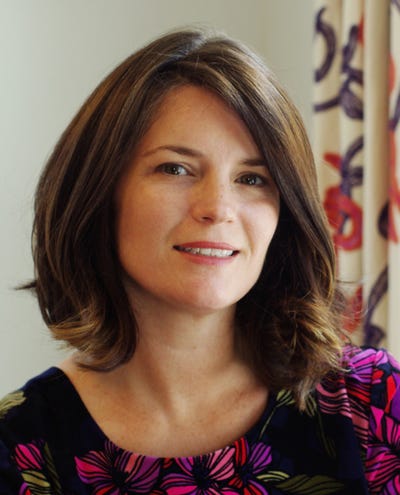After acquiring new school, Tufts revamps campus dining
A new limited dining option provides students a sense of community.
January 19, 2018
Since 1945, Boston’s Tufts University had been granting accredited degrees through a partnership with The School of the Museum of Fine Arts (SMFA), originally founded in 1876. In June 2016, however, Tufts formally purchased SMFA and has been fine-tuning the program as well as its campus amenities including dining over the last year.
“Now that we own the space, it became clear that the existing SMFA café needed infrastructure updates,” says Patricia Klos, Tufts’ director of dining and business services. “In July 2016, we closed the café, which is located on the ground level of the school’s main building on 230 The Fenway, as we evaluated our options.”
While the café was in transition, students and faculty often brought their own food to campus. “We also provided a food cart with limited service and used a company that provides pop-up service for lunch through a rotation of local restaurants, caterers and food trucks,” says Klos. “But it was clear the community was anxious to get something more permanent.”
This past November, Tufts opened the SMFA Café Express, a limited service dining option that meets the needs of a growing student population before a larger campus café opens in the near future. “We converted half of a nearby office into a 190-square-foot café,” says Klos. “Inside is an open-air merchandiser for grab-and-go items, a single door reach-in for beverages, a counter and soup wells, self-service coffee station and a cashier with the ability to warm up items with a microwave or turbo chef oven.”
The SMFA Café serves breakfast items such as oatmeal, breakfast sandwiches, pastries, cups of yogurt and fresh fruit. For lunch and dinner, there are choices such as chicken pot pie or tomato Florentine soups; roasted apple and Brie paninis with red onion jam; chicken fajita paninis; roasted sweet potato, pear, kale and pesto sandwiches; curried chicken salad sandwiches; and winter greens salads with chicken and walnuts. “We also try to have gluten-free options as well and maintain a separate designated oven for warming up gluten-free food,” says Klos, adding that most of the food is prepped at the university’s commissary central kitchen on its Medford/Somerville campus.
In order to make more use of the commissary, later this month the SMFA Café menu will expand to include more entrée items that can be reheated such as Asian-style chicken wings, macaroni and cheese, and chicken shawarma bowls as well as more vegetarian options such as falafel with rice pilaf and vegetable medley and vegetable fried rice. “In our experience, students in the arts tend to prefer meatless diets,” she says. After receiving multiple requests, Klos also hopes to add fresh sushi to SMFA Cafe within this school year.
While there’s no seating in the café, guests, which currently average 150 a day, take their food to the three-story atrium just outside the café. “There’s Wi-Fi, bistro tables and a counter that faces the window,” says Klos, “and the walls rotate art exhibits.”
 Right now, SMFA on Tufts’ Fenway campus, serves two types of students: those pursuing a BFA who spend their career on and around Fenway and a cohort of students that are dual degree who live on Tufts’ Medford/Somerville campus and travel the nine miles to Fenway throughout the week. SMFA faculty is also made up of working artists who may teach at the school Monday through Thursday but may live in NYC the rest of the week.
Right now, SMFA on Tufts’ Fenway campus, serves two types of students: those pursuing a BFA who spend their career on and around Fenway and a cohort of students that are dual degree who live on Tufts’ Medford/Somerville campus and travel the nine miles to Fenway throughout the week. SMFA faculty is also made up of working artists who may teach at the school Monday through Thursday but may live in NYC the rest of the week.
To reflect those changing population waves, the SMFA Café is closed on weekends and open Monday through Thursday from 8 a.m. to 7 p.m. and Friday from 8 a.m. to 4 p.m.. Klos says there’s a significant morning rush before 9 a.m., when most students go into studio classes until noon.
As Tufts tries to grow its newly acquired school, Klos says a café becomes a central part of building a sense of community. “Even if faculty and students don’t always interact, creating opportunities for those chance interactions is key to the school’s vibrancy,” she says.
As enrollment grows over the next two years, the team hopes to expand the café to 980 square feet and create a hot buffet where paninis and salads can be made to order, and also add a mini-market of convenience goods. “This part of the city is a bit of a food desert,” says Klos. “You have to walk a good 10 to 15 minutes to find something to eat.”
Although the SMFA Café hasn’t been open very long, Klos says the reaction of students and faculty has been very positive. “They tell me: ‘This is amazing! It’s so fresh and convenient and the service is great!’” she says.
About the Author
You May Also Like




.jpg?width=300&auto=webp&quality=80&disable=upscale)

.jpg?width=300&auto=webp&quality=80&disable=upscale)